The conversation around opioid use in the medical and public health spheres often involves two crucial terms: opioid dependence vs addiction. While frequently used interchangeably, these terms describe different aspects of opioid use disorder (OUD). This distinction is vital for both patients and practitioners to understand as it affects treatment approaches and outcomes. This blog aims to clarify opioid dependence vs addiction, providing a clear understanding for individuals seeking guidance on this complex issue.
Table of Contents:
- What is Opioid Dependence?
- Understanding Opioid Addiction
- Key Differences Between Dependence and Addiction
- Treatment Options for Opioid Dependence and Addiction
- Conclusion
What is Opioid Dependence?
When navigating opioid use, understanding the differences of opioid dependence vs addiction is important. Opioid dependence represents a physical state where the body has adjusted to the constant presence of opioids, leading to tolerance—necessitating higher doses for the same pain-relief effect—and a susceptibility to unpleasant withdrawal symptoms upon cessation, after tolerance is established (National Institute on Drug Abuse, 2002). These outcomes can manifest from both therapeutic use of prescribed opioids and from illicit consumption. Opioid dependence vs addiction is a crucial distinction, as dependence doesn’t necessarily include the compulsive behaviors of addiction, which is characterized by an intense psychological drive to use opioids regardless of adverse consequences. Recognizing this difference is essential for proper treatment, as dependence may be managed medically, whereas addiction typically requires more comprehensive behavioral interventions.
Understanding Opioid Addiction
When differentiating opioid dependence vs addiction, it’s important to recognize that addiction is not just physical dependence but includes compulsive behaviors and continued use despite negative consequences. Johns Hopkins Medicine outlines that opioid addiction, a severe aspect of opioid use disorder (OUD), leads to behavioral changes and dire health, social, and financial impacts. Addicted individuals often exhibit symptoms such as persistent cravings, drowsiness, sleep and eating pattern changes, withdrawal from relationships, and financial distress. This complex condition requires more than recognizing dependency; it necessitates comprehensive strategies for identification and treatment.

Key Differences Between Dependence and Addiction
In the context of Opioid Dependence vs Addiction, it’s crucial to grasp the differences that separate these two states. Opioid dependence is mainly about the body’s physical need for opioids, evident through increasing tolerance and the onset of withdrawal symptoms when usage is decreased or stopped. Conversely, addiction goes beyond physical dependence to encompass behavioral changes, highlighting a compulsive urge to consume opioids despite facing harmful outcomes. This distinction between opioid dependence vs addiction is essential, illustrating that dependence can occur without the psychological aspects of addiction. Recognizing these differences is key for developing effective treatment plans. Dependence may call for medical intervention to manage withdrawal symptoms, whereas addiction requires a broader approach, including therapies that address behavioral issues. Properly distinguishing between these conditions enables more precise and empathetic help for individuals struggling with opioid misuse.
Treatment Options for Opioid Dependence and Addiction
In treating opioid misuse, it’s important to tailor the approach based on Opioid Dependence vs Addiction. While dependence might respond well to medication-assisted treatment (MAT) to ease withdrawal symptoms, addressing addiction typically requires a combination of MAT, counseling, and supportive care to combat the behavioral aspects of the disorder. Understanding the nuances between opioid dependence vs addiction allows for a more personalized and effective treatment plan for individuals facing either or both challenges.
Conclusion:
The distinction between Opioid Dependence vs Addiction is vital for proper diagnosis, treatment, and support. Grasping the nuances between the two helps individuals seek the most appropriate care for themselves or loved ones. Navigating the recovery journey from opioid use disorder emphasizes the importance of support from healthcare providers, family, and friends, catering specifically to the challenges stemming from opioid dependence vs addiction.
Ready to take the next step towards recovery? Explore our resources and find the support you need for opioid dependence vs addiction treatment today.
References:
Johns Hopkins Medicine. (n.d.). Opioid Use Disorder. Johns Hopkins Medicine | Health. Retrieved from https://www.hopkinsmedicine.org/health/conditions-and-diseases/opioid-use-disorderNational Institute on Drug Abuse. (2002). The Neurobiology of Opioid Dependence: Implications for Treatment. Science & Practice Perspectives, 1(1), 13–20. https://www.ncbi.nlm.nih.gov/pmc/articles/PMC2851054/







